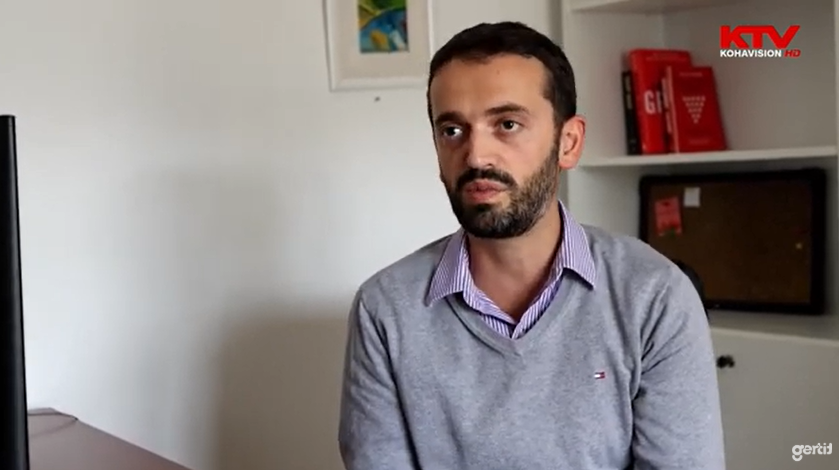GAP Institute presented the policy brief " Government Restructuring ", a proposal for reduction of ministerial posts, for a less costly and more efficient government
01/07/2014
Prishtina, July 1, 2014, at a press conference, GAP Institute for Advanced Studies presented a policy brief entitled Government Restructuring – a proposal for reduction of ministerial posts, for a less costly and more efficient government. Visar Rushiti, a policy analyst at GAP Institute, made a short presentation of policy brief as well as Agron Demi, executive director at GAP, presented the recommendations.
In this policy brief, GAP presented the increasing number of ministries of Kosovo Government, financial costs that are associated with the creation of governmental posts as well as the inefficiencies of ministries due to uncertain powers. Therefore, to increase the efficiency of the ministries and to save the state budget, GAP recommended the integration of several ministries into one ministry and the abolishment of few others.
Visar Rushiti (GAP), explained the high financial cost that Kosovo Government carries, where except the Prime minister, Kosovo’s Government has five deputy prime ministers, 19 ministers, 39 deputy ministers, and a large staff of political and administrative advisors, assistants, drivers and bodyguards.
In this policy brief, GAP included the increasing trend of ministers and deputy ministers since 2001 and argued that a government with a total of 19 ministries and a minister without a portfolio has negatively impacted on the performance and efficiency of ministries, which came as a result of the lack of Law on Government.
GAP Institute recommended the restructure of government based on four main priorities that Kosovo should have: the rule of law and professional public administration, economy and employment, education and health care, and Euro – Atlantic integration.
Therefore, based on these priorities GAP has introduced a new model of government that includes the following recommendations:
· To low the number of ministries form 19 to 13 ministries;
· To cut the number of deputy prime ministers from five to one deputy prime minister;
· Ministries to have only one deputy minister, except those ministries that have a big portfolio, two deputy ministers would be allowed;
· To integrate the Ministry of Trade and Industry, Ministry of Finance, Ministry of Infrastructure to the Ministry for Economic Development;
· To integrate the Ministry of Local Government to the Ministry of Public Administration;
· To distribute the Ministry of Diaspora in to the Ministry of Foreign Affairs and Ministry of Education, Science and Technology;
· To abolish the Ministry for Community and Return.
In this policy brief, GAP presented in details the organizational structure of ministries and justified the way how these ministries can be integrated among themselves without damaging their functionality and increasing their efficiency. Besides efficiency, these cuts will also produce budget savings. Thus, GAP estimates that the abolishment of six ministries, within a four year mandate Kosovo budget would save about 3.6 million Euro, the abolishment of only one position of deputy prime minister would save about 600 hundred thousands Euro.















